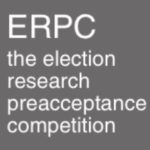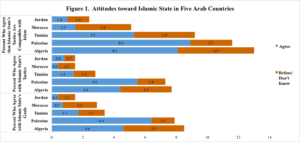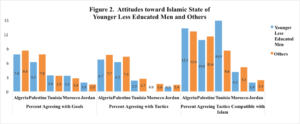Sep 2, 2016 | ANES, APSA, Elections
Post developed by Catherine Allen-West and Arthur Lupia
ICYMI (In Case You Missed It) this post details the Election Research Preacceptance Competition, organized by Arthur Lupia and Brendan Nyhan. Lupia discussed this initiative at the “Roundtable on the CPS Special Issue on Transparency in the Social Sciences” at APSA 2016 on Friday, September 2, 2016.
 How can scholars study politics most effectively? The Election Research Preacceptance Competition (http://www.erpc2016.com) is an innovative initiative that will test a new approach to conducting and publishing political science research during the 2016 election.
How can scholars study politics most effectively? The Election Research Preacceptance Competition (http://www.erpc2016.com) is an innovative initiative that will test a new approach to conducting and publishing political science research during the 2016 election.
Entrants in the competition will preregister a research design intended to study an important aspect of the 2016 general election using data collected by the American National Election Studies (ANES). A condition of entering the competition is that entrants must complete and register a design before the ANES data are released. Many leading academic journals have agreed to review scholarly articles that include these research plans and to review them before the data are available or results are known.
(more…)
Sep 1, 2016 | APSA, CLEA, Innovative Methodology, International
Post developed by Catherine Allen-West in coordination with Diogo Ferrari

Diogo Ferrari, PhD Candidate, University of Michigan, Ann Arbor
ICYMI (In Case You Missed It), the following work was presented at the 2016 Annual Meeting of the American Political Science Association (APSA). The presentation, titled “The Indirect Effect of Income on Preferences for Centralization of Authority,” was a part of the session “Devolution, Fragmented Power, and Electoral Accountability” on Thursday September 1, 2016.
One of the primary activities of any elected government is to decide how to allocate public funds for policies like health care and education. In countries that adopted a federal system – like the United States, Canada, Australia, Germany, and others – the central government usually has some policies that promotes distribution of fiscal resources among different jurisdictions, like among states or cities. Take Australia for example. The federal government collects taxes that are funneled to local governments in accordance with their needs. This diminishes the inequality between different Australian sub-national governments in their capacity to invest and provide public services. Brazil is another example. Brazil has a huge federal program that transfers resources from rich to poor states and whose goal is to reduce regional inequality. These federal governments can only continue to operate in this way, that is, promoting interregional redistribution, if the power to control fiscal resources is centralized. Therefore, there is a connection between interregional redistribution and centralization of authority.
Now, voters have different preferences about how the government should spend the fiscal resources. They have different opinions, for instance, to which degree taxes collected in one region should be invested in another region. Do voters that support interregional redistribution also prefer that the fiscal authority is concentrated in the hands of the federal government as opposed to the sub-national ones? Which characteristics determine the preference of voters regarding interregional redistribution and centralization of authority? How those preferences are connected?
(more…)
Sep 1, 2016 | APSA, Conflict, Current Events, Foreign Affairs, International
Post developed by Catherine Allen-West in coordination with Michael Robbins.
ICYMI (In Case You Missed It), the following work was presented at the 2016 Annual Meeting of the American Political Science Association (APSA). The presentation, titled “Passive Support for the Islamic State: Evidence from a Survey Experiment” was a part of the session “Survey and Laboratory Experiments in the Middle East and North Africa” on Thursday, September 1, 2016.
On Thursday morning at APSA 2016, Michael Robbins, Amaney Jamal and Mark Tessler presented work which explores levels of support for the Islamic State among Arabs, using new data from the Arab Barometer. The slide set used in their presentation can be viewed here: slides from Robbins/Jamal/Tessler presentation
Their results show that among the five Arab countries studied (Jordan, Morocco, Tunisia, Palestine and Algeria) there is very little support for the tactics used by Islamic State.

Furthermore, even among Islamic State’s key demographic – younger, less-educated males – support remains low.

For a more elaborate discussion of this work and the above figures, please see their recent post in the Washington Post’s Monkey Cage blog, “What do ordinary citizens in the Arab world really think about the Islamic State?”
Mark Tessler is the Samuel J. Eldersveld Collegiate Professor of Political Science at the University of Michigan. Michael Robbins is the director of the Arab Barometer. Amaney A. Jamal is the Edwards S. Sanford Professor of Politics at Princeton University and director of the Mamdouha S. Bobst Center for Peace and Justice.
 How can scholars study politics most effectively? The Election Research Preacceptance Competition (http://www.erpc2016.com) is an innovative initiative that will test a new approach to conducting and publishing political science research during the 2016 election.
How can scholars study politics most effectively? The Election Research Preacceptance Competition (http://www.erpc2016.com) is an innovative initiative that will test a new approach to conducting and publishing political science research during the 2016 election. 



